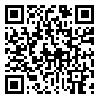BibTeX | RIS | EndNote | Medlars | ProCite | Reference Manager | RefWorks
Send citation to:
URL: http://jhs.mazums.ac.ir/article-1-435-fa.html
Background and purpose: Diabetes is the most common metabolic disorder which is caused by defects in insulin secretion, insulin action, or both .The most important factor in managing diabetes is self-care. Since diabetes self-care behaviors are multifactorial and these factors may directly or indirectly affect self-care, it is possible through the application of path analysis to estimate the direct, indirect and total effect of variables on self-care.
Materials and Methods: The present study was cross-sectional, and according to the hypothesized model, the sample size was determined to be 500 patients. To collect the study data, five questionnaires were utilized. Path analysis was then conducted to investigate the effects of variables of the study on self-care behaviors. The analyses were performed using SPSS 16.0 and MPlus6 .The following goodness-of-fit were also used: χ2, RMSEA, CFI and SRMR test-statistics. P value 0.1 or less than 0.1 was considered statistically significant.
Results: The estimated model demonstrated a good model fit, (χ2= 24.5, p=0.22), (RMSEA=0.02), (CFI =0.92) and (SRMR=0.03).Total effect (p<.01), total indirect effect (p=0.08) and direct effect (p<.01) of duration of diabetes on self-care were significant. The increase in duration of diabetes has also resulted in an increasing level of self-care ability. The findings showed that the total effect of patient and doctor relationship on self-care was significant (p=0.01), but the total indirect effect was not significant (p=0.24). Patient-doctor relationship (p=0.01) as well as diabetes knowledge (p<.01) had also a direct effect on self-care.
Conclusion: Despite the limitations, each six hypothesized variable leading directly to self-care behavior had significant effect. The study findings indicated that several factors affect self-care behavior which is the most important and most vital step in metabolic control in diabetic patients.
| بازنشر اطلاعات | |
 |
این مقاله تحت شرایط Creative Commons Attribution-NonCommercial 4.0 International License قابل بازنشر است. |




